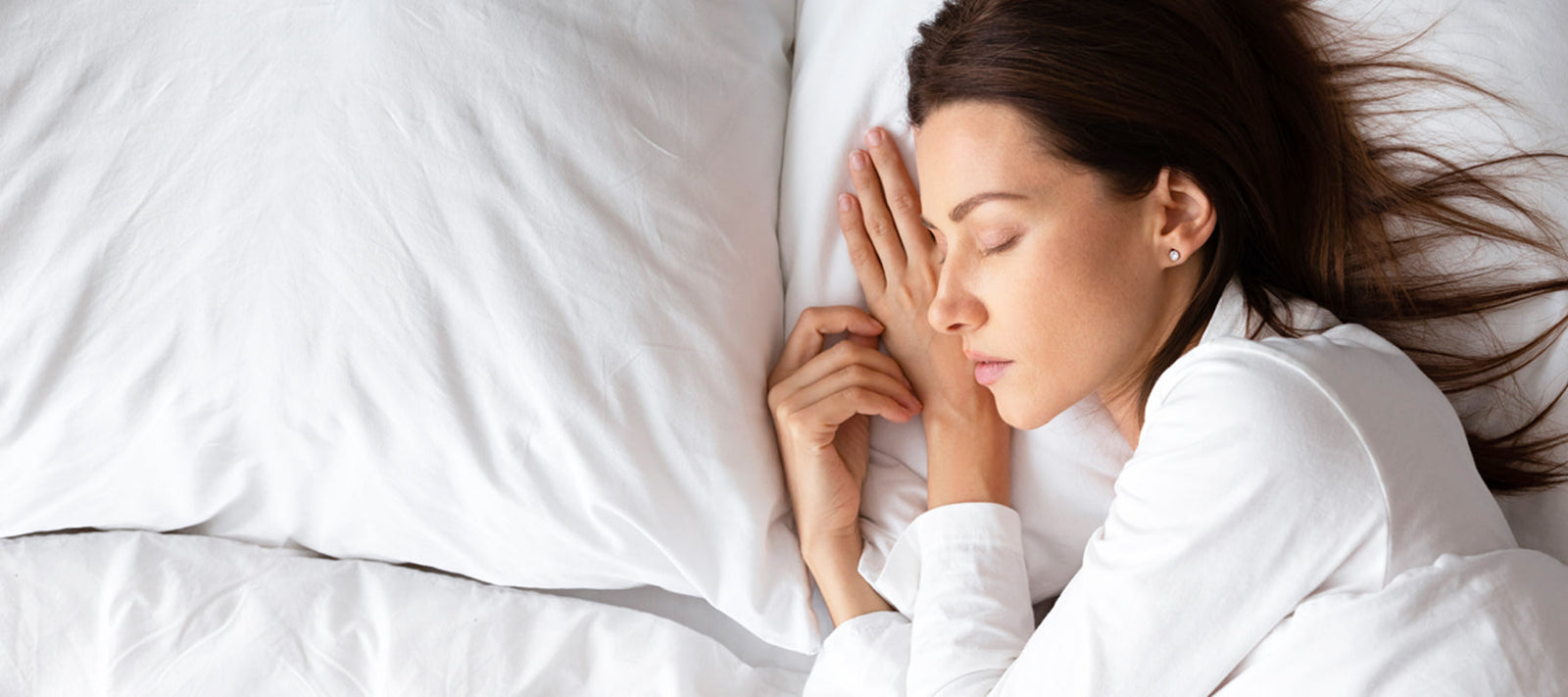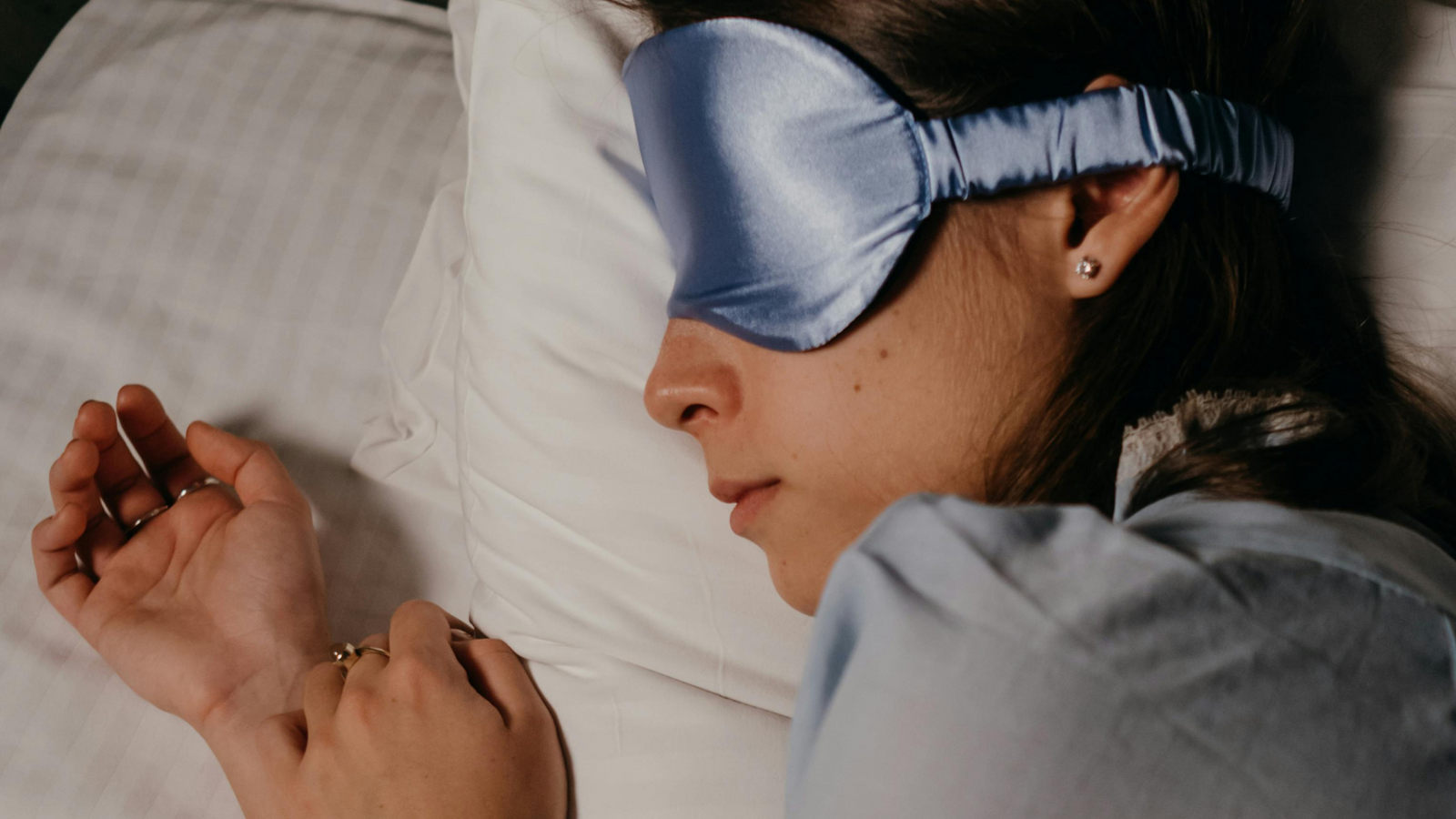Your Cart is Empty
Buy now, pay later or in 3 with Klarna
Get free shipping by subscribing to newsletter!
Fast shipping from our warehouse in the UK!
Buy now, pay later or in 3 with Klarna
Get free shipping by subscribing to newsletter!
Fast shipping from our warehouse in the UK!

Best Pillow for Side Sleepers
What Kind of Pillow is Best for a Side-Sleeper?
Making up approximately 74% of the population, side-sleepers are the clear majority when it comes to sleeping styles. With several benefits and few drawbacks, many individuals opt to snooze on one side or the other. But even if you prefer this position, it can be uncomfortable if you don’t have the right pillow.
In this post, we’ll explain what makes a good side-sleeper pillow, from fill and shape to positioning. Read on for an in-depth look at the best pillows for side-sleepers, or use the links below to skip ahead to the section you’re most interested in.
- What is the Best Pillow for Side-Sleepers?
- What to Consider When Shopping for Side-Sleeper Pillows
- Best Overall Pillow for Side-Sleepers
- Body Pillows for Side-Sleepers
- What Pillow Type is Best for Side-Sleepers With Neck Pain?
- Wrapping Up
What is the Best Pillow for Side-Sleepers?
Generally, the best pillow for side-sleepers is a pillow with medium to medium-firm support. When you sleep on your side, you want your head and neck to be aligned with your spine. Proper alignment is key to preventing neck pain and soreness, and ultimately, promoting a healthy neck and back. When side-sleepers use a pillow with minimal support or a low loft (thickness), their head usually drops below the neck, causing discomfort and stiffness when they wake up.
It’s important to note that everybody is different, so what’s best for your sleeping style may not be best for someone else. Above all, comfort is key when it comes to finding the best pillow for side-sleepers. In the following section, we’ll take a closer look at the different materials and types of pillows that are most suitable for side-sleeping.

What to Consider When Shopping for Side-Sleeper Pillows
No matter what sleeping position you prefer, there are several factors you should consider when shopping for a new pillow. These factors include loft, support, firmness, material, and shape. Below, we’ll define what these considerations mean and what they look like in the context of side-sleeper pillows.
Loft
Loft refers to the thickness of a pillow, ranging from low-loft to high loft:
- Low-loft = <3 inches
- Medium-loft = 3-5 inches
- High loft = > 5 inches
Side-sleepers typically need a medium to high loft in order to adequately support their head and neck, preventing it from dropping below the rest of the body.

Support/Firmness
The pillow's support refers to how well it keeps your head and neck on an even surface. For side-sleepers, spinal alignment is critical, so it’s a good idea to choose a pillow that doesn't sink too deeply or lift your head too much.
A pillow that is too soft can cause your head to sink lower than your neck, resulting in alignment problems and extra pressure. Alternatively, you may have soreness around the neck and shoulders if the cushion is overly firm. Pillows with medium firmness are ideal for side-sleepers because they give a good balance of contouring and support.

Material
The materials used to make a pillow's cover and filling can have an impact on durability, temperature regulation, form preservation, and ultimately, comfort. While a pillow with higher-quality materials will likely cost more, you can expect longer life and better function from many of these premium options.
Side-sleepers typically sleep best with materials that offer a comfortable amount of support and contouring, including:
- Latex
- Memory foam
- Feather
- Down
- Polyfoam
- Buckwheat

Shape
Over time, some fill materials compress and change shape, making the pillow flat and less pleasant to sleep on. These pillows will need to be fluffed on a regular basis to maintain their full shape. In general, solid foam and latex keep their shape with little effort, so they tend to be a good option for those that sleep on their side, and therefore, need unwavering support.

Pressure Relief
Because their mattress is not supportive enough, many side-sleepers have pressure in their shoulders and hips. Similarly, if the side-sleeper's pillow does not keep the neck and shoulders aligned with the spine, pressure points may form. As a result, side-sleepers require a pillow that is both supportive and conforms to the body.

Price Point
As we mentioned, higher-quality pillows typically have a higher price point. However, they also tend to last longer and are more comfortable overall. As you shop for a side-sleeper pillow, keep in mind your budget as well as the considerations outlined above.
Best Overall Pillow for Side-Sleepers
Using the information above, the best pillow for side-sleepers combines the following features:
- Medium-high loft to promote spinal alignment
- A moderate amount of support/firmness
- Quality filler material, such as memory foam, latex, down, polyfoam, feather, buckwheat
- Material that retains its shape, like foam or latex
- A pillow that offers support and contouring to alleviate pressure on the head, neck, and shoulders
Body Pillows for Side-Sleepers
In addition to traditional pillows, body pillows can also be a suitable option for side-sleepers. In fact, most body pillows naturally cater to the side-sleeping posture. MedCline offers several types of body pillows that can help side-sleepers rest more comfortably, whether they have shoulder pain, nighttime acid reflux, or just want to maintain their healthy spine. Our body pillow-style sleep systems include:
-
Therapeutic Body Pillow: The MedCline Therapeutic Body Pillow is currently the most comfortable body pillow on the market. The shredded memory foam filling may be modified to fit your body, such as forming a nest for your neck or providing optimal knee support. This full-length, J-shaped body cushion is designed for side-sleeping comfort and provides optimal alignment for your neck, body, and hips for a blissful slumber. Our Therapeutic Body Pillow can be helpful for:
- Sciatica
- Lower back pain
- Neck pain
- Spinal alignment
- Pregnancy aches and pains
- Fibromyalgia
- Medical conditions that benefit from side-sleeping
-
Shoulder Relief System: If you experience shoulder pain from side-sleeping, the MedCline Shoulder Relief System may be the answer. The system works by dropping your down arm into a unique arm pocket, relieving shoulder discomfort while draping your other arm over the Therapeutic Body Pillow. This creates a neutral arm posture enabling you to sleep peacefully on your left or right side once more. Our Shoulder Relief System can benefit individuals who struggle with:
- Shoulder impingement
- Rotator cuff injuries
- Arm falling asleep at night
- Arthritis/bursitis
- Nerve impingement
- Post-surgical recovery
- General shoulder pain
-
Acid Reflux Relief System: The MedCline Reflux Relief System relieves unpleasant acid reflux at night, allowing you to sleep better and feel better during the day. The only product on the market today that establishes and maintains the doctor-recommended inclined, left-side sleeping posture in one simple solution for efficient, natural acid reflux symptom alleviation is this proprietary Sleep System. Clinical studies have shown improvement in individuals with:
- Gastroesophageal Reflux Disease (GERD) / Acid Reflux
- Laryngopharyngeal Reflux (LPR) / Silent Reflux
- Gestational Reflux
What Pillow Type is Best for Side-Sleepers With Neck Pain?
Alignment is key when it comes to sleeping on your side, and not doing so may result in a number of uncomfortable consequences, including neck pain. So, what type of side-sleeper pillow is the best option for those with neck pain? It’s really as simple as support.
Side-sleepers with neck pain should look for a pillow that doesn’t sink in too much and helps keep their head and neck in alignment with the rest of their body. A pillow that is too high will crane the neck upward, and one that’s too low will position the head and neck downward, both causing strain over time.
Wrapping Up
What is the best pillow for side sleepers? Ultimately, it depends on your body and unique preferences. Use the information above to help guide your search and don’t forget to check out our top-rated pillows for side-sleepers!



